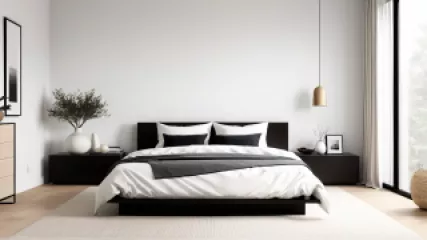The Ultimate Guide to Understanding the Emotional Impact of Decluttering
Do you ever feel overwhelmed by the clutter in your home? Have you noticed how it affects your mood and overall well-being? You're not alone. Many people underestimate the emotional impact of living in a cluttered environment. In this ultimate guide, we will explore the profound effects of clutter on our emotions and mental health. We will also delve into the transformative power of decluttering and how it can bring about healing and mental clarity. So, let's begin our journey to understanding the emotional impact of decluttering.
The Connection Between Clutter and Emotional Well-being
Clutter is more than just a physical mess; it can have a significant impact on our emotional state. When our surroundings are chaotic and disorganized, it can create a sense of unease and stress. Research has shown that clutter can contribute to feelings of anxiety, helplessness, and even depression. Our environment has a direct influence on our emotions, and living in a cluttered space can disrupt our mental well-being.
Think about how you feel when you walk into a tidy, minimalist space versus a cluttered room. The former evokes a sense of calm and serenity, while the latter can make you feel overwhelmed and mentally drained. Our brains thrive in clean, organized environments, allowing us to focus better and experience a greater sense of inner peace.
The Therapeutic Power of Decluttering
Decluttering is not just about tidying up; it can be a powerful therapeutic tool for improving our emotional well-being. By intentionally removing physical clutter from our lives, we create space for mental clarity and emotional healing. Here are some ways in which decluttering can have a positive impact on our emotions:
1. Sense of Accomplishment
Decluttering provides a sense of accomplishment and control over our environment. As we sort through our belongings, make decisions, and create order, we experience a boost in self-esteem and confidence. This sense of achievement can have a profound impact on our overall emotional well-being.
2. Letting Go of the Past
Clutter often represents unfinished business or attachments to the past. By decluttering, we let go of physical items that may hold emotional weight. This process allows us to release negative emotions associated with the past and create space for new beginnings.
3. Increased Focus and Productivity
A cluttered space can be highly distracting, making it difficult to concentrate and be productive. When we declutter, we remove these distractions and create an environment that promotes focus and efficiency. This, in turn, reduces stress and enhances our ability to accomplish tasks.
4. Enhanced Mood and Energy
Living in a clutter-free environment can improve our mood and increase our energy levels. Cluttered spaces can drain our mental and physical energy, leaving us feeling exhausted and overwhelmed. By decluttering, we create a space that is uplifting and energizing, positively impacting our emotional state.
The Role of Clutter Coaching in Mental Wellness
For those struggling with emotional clutter, seeking guidance from a clutter coach can be highly beneficial. Clutter coaching is a form of therapy that focuses on helping individuals declutter their physical and emotional spaces. These professionals provide support, guidance, and practical strategies for overcoming emotional barriers to decluttering.
Clutter coaching sessions typically involve:
- Identifying Emotional Attachments: Clutter coaches help individuals understand the emotional reasons behind their attachment to certain items. By addressing these underlying emotions, individuals can begin to let go of unnecessary belongings.
- Setting Realistic Goals: Clutter coaches work with individuals to set achievable decluttering goals. They break down the process into manageable steps, ensuring that progress is made without overwhelming the individual.
- Providing Emotional Support: Decluttering can be an emotional journey, and clutter coaches offer a safe space for individuals to express their feelings and concerns. They provide encouragement and support throughout the process.
- Developing Organizational Systems: Clutter coaches help individuals develop personalized organizational systems that suit their lifestyle and preferences. These systems ensure that the space remains clutter-free in the long term.
By working with a clutter coach, individuals can receive the guidance and support they need to overcome emotional clutter and create a more harmonious living environment.
Conclusion
Decluttering is not only about creating an organized physical space; it is also a powerful tool for improving our emotional well-being. By understanding the emotional impact of clutter and embracing the therapeutic power of decluttering, we can experience healing, mental clarity, and enhanced emotional wellness. Whether you embark on this journey independently or seek the guidance of a clutter coach, the benefits of decluttering are undeniable. So, take the first step towards a clutter-free life and discover the profound emotional transformations that await you.






